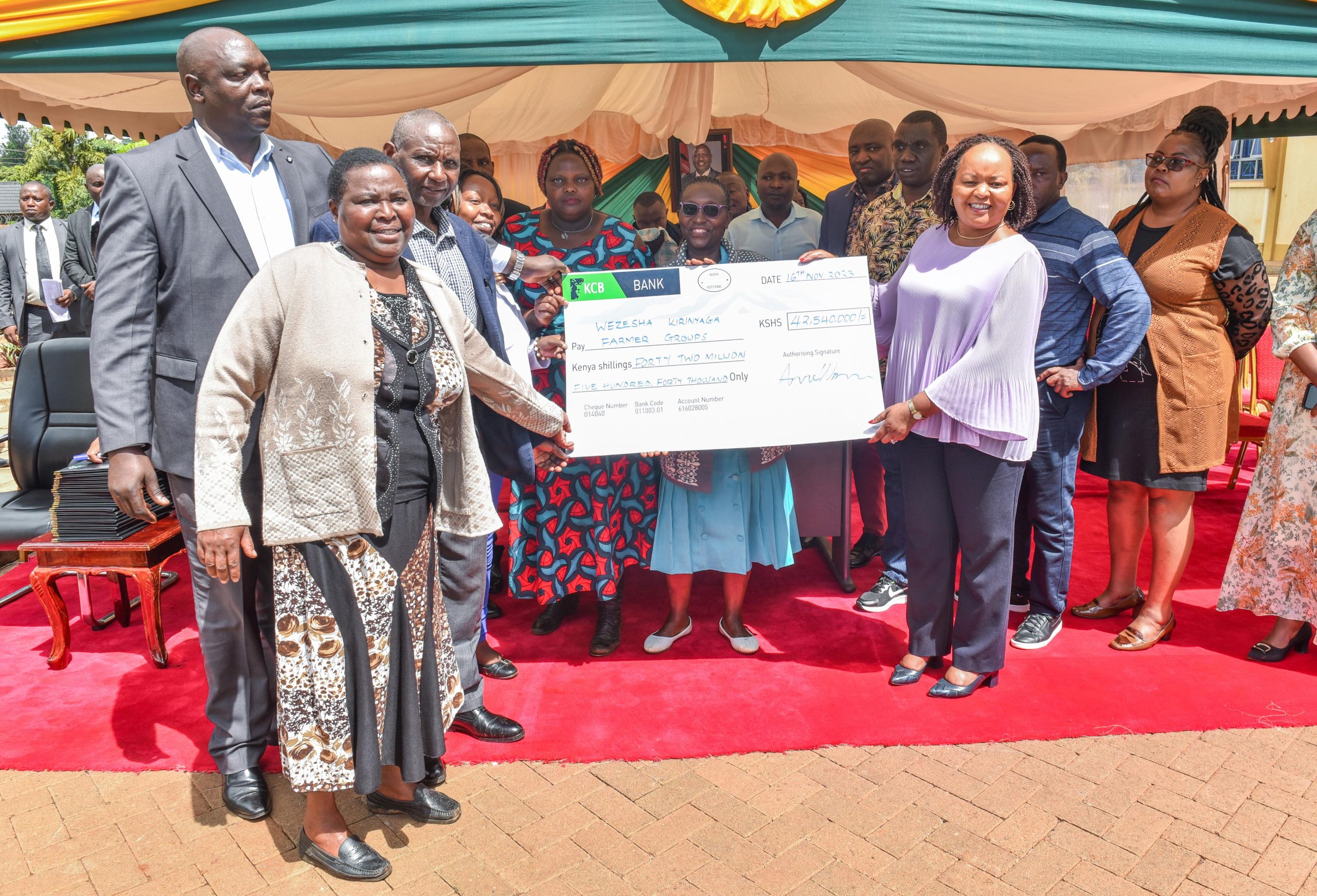“Wezesha Kirinyaga,” an economic empowerment program, is rewriting the story of smallholder farmers into an engine of growth that has increased earnings and lifted families out of poverty.
The initiative by Governor Anne Waiguru has supported more than 100,000 households engaged in multiple agricultural value chains to increase production and market their produce.
The farmers have been funded by the County Government to the tune of Sh540 million to venture into tomato, rice, dairy, poultry, coffee, avocado, apiculture, aquaculture, goat and pig farming, among others.
“When we launched Wezesha Kirinyaga, our goal was simple: to make farming profitable again. Today, our farmers are organised, productive, and earning more than ever before. Agriculture has become the heartbeat of our local economy,” Waiguru said.
Started in 2020, the program has funded 804 farmers’ groups with Sh253 million and an additional 19 Farmers’ Producer Organisations, with Sh266 million to strengthen production and marketing of farm produce.
Governor Waiguru said her administration has also pumped in Sh21 million for the establishment of 20 multi–value chain Savings and Credit Cooperative Organisation (SACCOs) in every ward to enhance access to affordable credit and markets.
The money has been used in supporting the cooperatives to set up offices, farmer’s mobilisation and financial services.
Speaking during the
2025 State of the County Address at the Kirinyaga County Assembly, Waiguru said
the empowerment program has helped increase farmers’ earnings.
She said such
initiatives have partly contributed to the reduction in of county poverty
index, which has dropped from 23% to 21%, lifting approximately 52,000
households out of poverty.
“Our farmers are no longer farming for
survival; they are farming for profit,” she emphasised.
“The results are
visible in every ward, every cooperative, and every household that has
benefited from Wezesha Kirinyaga.”
The Governor said the
County economic growth rate now stands at 5.4%, surpassing the national average
of 4.9%.
Further, she said the
Gross County Product has increased from Sh114.9 billion in 2017 to Sh190.79
billion in 2024, injecting significant liquidity into the local economy.
She underscored the
remarkable growth in rice production, which has more than doubled from 90,000 metric tons to 210,000 metric tonnes
annually, generating over Sh15
billion.
On coffee, the Governor said farmers are
now receiving a payout of up to Sh148
per kilo, which she termed as “the
highest payout in the country.”
She attributed the improvement to the
county’s support in cooperative management and direct marketing that ensures
farmers reap maximum value from their produce.
She said through the County
Government’s support, tomato production had surged from 46,000 to 116,000 tonnes, earning local farmers about Sh6.9 billion annually. She pointed
out that modern pest management, improved seed varieties, and better market
coordination had reduced losses and boosted profits.
The dairy sector, she added, had
experienced a similar boom. Average milk yields per cow had grown from 2.5 litres to 7 litres daily,
translating to Sh3.1 billion in annual
income. Waiguru said the rise was a direct result of county-led
interventions such as provision of subsidised artificial insemination services,
subsidised animal feeds and fertiliser and milk cooling equipment for
cooperatives.
Avocado production, she said, had also
become a key income source for farmers, currently standing at 15,000 metric tonnes valued at Sh300
million, with ongoing expansion expected to push output to 21,000 tonnes in the coming year.
“Our farmers have embraced avocado
farming as the new green gold,” Waiguru said.
“We are supporting them with
certified seedlings and linking them to export markets so they can fully
benefit from the global demand.”
She added that the County will continue
investing in supporting smallholder farmers in value addition, post-harvest
handling, and access to stable markets to protect farmers from price
fluctuations and middlemen exploitation.
“Our next phase is about sustainability, ensuring every farmer continues to grow their income and every village becomes
part of the agricultural success story,” she said.


